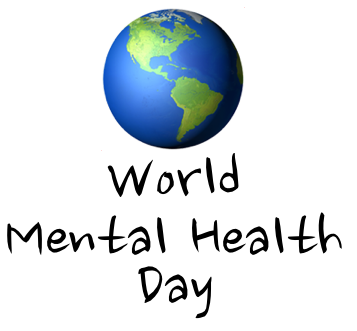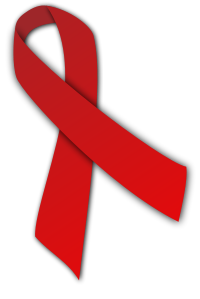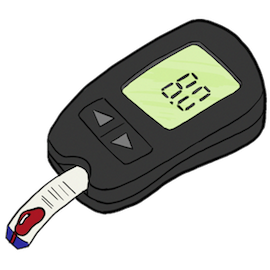Today (Tuesday 10th October 2017) is World Mental Health Day. So here’s 10 easy ways to improve your mental health:

Tuesday 10th October 2017 – World Mental Health Day
10. Regular Exercise
I don’t mean becoming a gym bunny or taking up running. Start walking. Walking is the easiest form of exercise. Take it slow and easy. Do it regularly, a couple of times a week. Gradually build up the distance. It’s even better if you can walk in places of natural beauty, as you’ll have the scenery to enjoy.
NHS Choices says:
Research shows that physical activity can also boost self-esteem, mood, sleep quality and energy, as well as reducing your risk of stress, depression…
(From: NHS Choices, last accessed: Thursday 28th September 2017)
9. A Better Diet
We could all do with eating a bit better right? Add more fruit and vegetables to your diet – aim for five a day. Cut down on the amount of sugar and salt in your food. Try to drink 6-8 glasses of fluid per day (roughly 1.2 litres). You can learn more about diet on the NHS Choices – Eatwell Guide website.
8. Go Smoke-Free
Despite many smokers saying that a cigarette reduces their stress levels, Nicotine is a stimulant which means it has the opposite effect. It increases anxiety and stress levels, especially when those nicotine receptors in the brain need feeding. Becoming smoke-free has loads of other benefits as well.
7. Drink Less Alcohol
Alcohol is a depressant drug and affects your brain chemistry. Drinking a small amount of alcohol decreases inhibitions and can make you feel happier. But drinking heavily can lead to a lowered mood. It’s also not a good idea to drink if you are angry or upset, as it can make you feel worse and do things that you wouldn’t do sober.
You don’t have to stop drinking alcohol, just cut down on the amount. A good tip is to buy less alcohol. If you buy less alcohol you’ll have less to drink.
6. Meditate
Meditation is about clearing your mind and focusing on the present or a particular thought or emotion. Research suggests that daily meditation for just 20 minutes per day has benefits to mental health after just five days. Benefits of meditation include: lower stress levels, feeling more positive, improved concentration, improves the ability to be in the moment and helps with clarity of thought.
Start slow with meditation. Set an alarm for a short period of time, say 5-10 minutes and gradually build up the time. Gradually build up the frequency of meditation sessions to, so start with a couple of times a week and work towards daily practice. Like anything, your ability to meditate will get better with practice. So don’t be surprised if you struggle with intruding thoughts initially and don’t let them discourage you.
5. Recognise the Signs of Stress
Recognise when your stressed and take steps to de-stress. You can do this by taking a deep breath, focusing on your body, mind and feelings and look for signs of stress. I call this checking-in with myself and try to do it a few times a day. Signs of stress include:
How you may feel emotionally
- overwhelmed
- irritable and “wound up”
- anxious or fearful
- lacking in self-esteem
How you may feel mentally
- racing thoughts
- constant worrying
- difficulty concentrating
- difficulty making decisions
How you may feel physically
- headaches
- muscle tension or pain
- dizziness
- sleep problems
- feeling tired all the time
- eating too much or too little
(From: NHS Choices, last accessed: Friday 29th September 2017)
4. It’s okay to say NO
When we think about saying no to people, we imagine the world will end. But the reality is nothing like our imagination. In fact, most of the time, people are okay about it. Remember that it is okay to say no and say it when you need to.
Sometimes it’s better to say no rather than say yes. Otherwise we risk over committing ourselves and spread our limited energy too thinly.
3. Sleep
Sleep is so important for good mental health. Sleep allows our bodies to rest and repair. The average adult needs eight hours of sleep. But children and teenagers need much more. But it’s not just about the amount of the sleep you get, it’s also about the quality. Poor quality sleep lowers resilience and increases the risk of physical and mental illness. Get your shut-eye in and try to have a good sleep routine.
2. Off-Load
We all need people to talk to and to off-load to at times. Some off-load to their families, their spouses, their friends or their therapists. Find some people in your life who you can off-load to.
Important characteristics in people you choose to off-load to: they should give you a feeling of trust, they should have the ability to actively listen to what you say, they should be non-judgemental, they should be empathetic and they should challenge you when needed.
1. Relaxation
Write a list of things that help you relax. Then do some of the things on the list on a regular basis. For example, reading really relaxes me. So every night before bed, I read, even if it’s just for ten minutes.
Write soon,
Antony
References
NHS Choices – Benefits of exercise
NHS Choices – Eatwell Guide
Smokefree NHS
Drink Aware – Alcohol and mental health
NHS Choices – Does meditation reduce stress?
NHS Choices – How to deal with stress
One You – Sleep








A great introductory article on candle magic :)
Hi Sofia, Thanks for the comment. I bought that in Glastonbury and he was a real find. I bought him…
Hi! I know this was posted ages ago and so a response may be rare but my dad has been…
Hi Ruth, Thanks for the comment. He might well have been. A x
Hi! Watching video and interviews with Charlie Watt, it had me wondering if he might have had Aspergers/ been on…